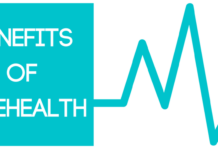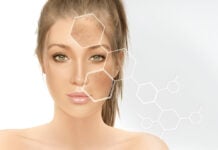When it comes to protecting our health, one of the most overlooked yet crucial aspects is skin cancer prevention. Skin cancer is the most common type of cancer worldwide, and yet many people underestimate the role they can play in safeguarding themselves. The two pillars of prevention are consistent use of sunscreen and regular skin checks, simple habits that can literally save your life. Let’s explore why these practices matter so much and how you can incorporate them into your daily routine.
Understanding Skin Cancer and Its Risks
Skin cancer primarily develops due to damage from ultraviolet (UV) radiation, which comes from the sun and tanning beds. There are three main types: basal cell carcinoma, squamous cell carcinoma, and melanoma. While basal and squamous cell carcinomas are generally less aggressive, melanoma is far more dangerous and can spread rapidly if not caught early (American Cancer Society, 2024).
The good news? Most skin cancers are preventable, and early detection greatly improves outcomes. But that requires awareness and action, two things we can all commit to.
Why Sunscreen Is Your Best Defense
Sunscreen is more than just a cosmetic product, it’s a powerful shield against harmful UV rays. Unfortunately, many people still either don’t use sunscreen regularly or use it incorrectly. Some believe sunscreen is only necessary on sunny days or during summer, but UV rays can penetrate clouds and reflect off surfaces like water or snow year-round.
The American Academy of Dermatology recommends using a broad-spectrum sunscreen with at least SPF 30 every day on exposed skin (AAD, 2023). Broad-spectrum means it protects against both UVA and UVB rays, both of which can damage skin and increase cancer risk. Applying sunscreen about 15 minutes before going outside and reapplying every two hours, or immediately after swimming or sweating, ensures ongoing protection.
Beyond prevention, sunscreen also helps slow skin aging and maintains overall skin health, making it a multitasking essential for everyday life. Making sunscreen part of your morning routine, like brushing your teeth, can turn it into a habit that sticks.
The Power of Skin Checks, Knowing Your Body
While sunscreen is crucial, it’s only half the battle. Regular skin checks, both self-examinations and professional evaluations, are vital to catch suspicious changes early.
Self-examinations involve taking a close look at your skin from head to toe every month. Pay attention to any new moles, growths, or spots, as well as changes in existing ones. The ABCDE rule is a handy guide for spotting potential melanomas:
- Asymmetry: One half looks different from the other
- Border: Edges are irregular or blurred
- Color: Variations or uneven coloring
- Diameter: Larger than 6 millimeters (about the size of a pencil eraser)
- Evolving: Any change in size, shape, or color (Skin Cancer Foundation, 2023)
If you notice anything suspicious, don’t panic, but do schedule a visit with a dermatologist as soon as possible.
Professional skin checks are equally important, especially for people with higher risk factors such as fair skin, a history of sunburns, excessive UV exposure, or a family history of skin cancer. Dermatologists can perform thorough examinations and use tools like dermoscopy to detect early signs invisible to the naked eye.
Making Prevention Part of Your Lifestyle
The challenge with prevention is consistency. It’s easy to forget sunscreen or skip skin checks when life gets busy. But framing these habits as acts of self-care rather than chores can make a difference. Think of sunscreen as a daily ritual that protects not only your skin but also your confidence and well-being. And view skin checks as a way to stay connected to your body, an opportunity to listen and respond to what it needs.
For families, teaching children good sun safety from a young age sets them up for healthier habits later in life. Wearing hats, seeking shade during peak sun hours, and choosing protective clothing are additional layers of defense that complement sunscreen.
The Bigger Picture, Advocacy and Awareness
On a societal level, raising awareness about skin cancer prevention saves lives. Campaigns encouraging sunscreen use and regular skin screenings have made progress, but more work is needed to reach diverse communities and dispel myths.
If you’re passionate about skin health, consider sharing what you’ve learned with friends and family or participating in local skin cancer awareness events. Sometimes, a conversation is all it takes to spark someone else’s commitment to prevention.
Skin cancer prevention boils down to two simple, powerful actions: daily sunscreen use and regular skin checks. These habits aren’t just about avoiding a disease, they’re about valuing your skin as the protective, living organ it is. By integrating these practices into your routine, you empower yourself to reduce risks and catch problems early, improving both your quality and length of life.
Remember, your skin tells your story every day, so help it tell a healthy one.
References
- American Academy of Dermatology. (2023). Sunscreen FAQs. https://www.aad.org/public/everyday-care/sun-protection/sunscreen-patients/sunscreen-faqs
- American Cancer Society. (2024). Skin Cancer. https://www.cancer.org/cancer/skin-cancer.html
- Skin Cancer Foundation. (2023). ABCDEs of Melanoma. https://www.skincancer.org/skin-cancer-information/melanoma/abcd/












